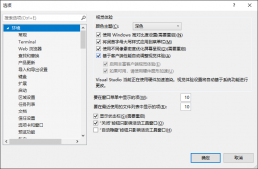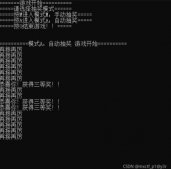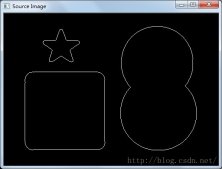1、类class
类是面向对象中的特性,在c中是没有类的概念。通常用class来表示,cpp中有抽象类,但是没有接口这种说法,cpp支持多继承。
一个普通的类:
|
1
2
3
4
5
6
7
8
9
10
11
12
13
14
15
16
|
class Fruit{ private: public: Fruit(); ~Fruit();};Fruit::Fruit(){}Fruit::~Fruit(){} |
构造函数和析构函数:
其中Fruit()表示构造函数, ~Fruit()表示析构函数。构造函数用来创建对象,设置初始化参数。析构函数在对象销毁的时候执行。
修饰符:
private:表示私有成员,外部不可访问,只有自身类和友元函数可以访问。
public:表示公共成员,外部可以访问。
protected:表示保护成员,保护成员和私有成员相似,但是子类可以访问保护成员。
类中的成员函数:
我们在类中创建函数的时候,可以直接初始化,或者在类外部实现:
|
1
2
3
4
5
6
7
8
9
10
11
12
13
14
15
16
17
18
19
20
21
22
23
24
25
26
27
28
29
30
|
class Fruit{ private: int count; public: Fruit(); ~Fruit(); void add(int i); //直接初始化 int getCount(){ return count; }};Fruit::Fruit(){ cout << "create fruit" << endl;}Fruit::~Fruit(){ cout <<"fruit deleted"<<endl;}//在类外部实现void Fruit::add(int i){ count = count + i;} |
友元函数:
友元函数虽然可以在类中定义,但是它不属于类的成员函数,必须在类外部实现。它可以访问定义类中的private和protected成员。
友元类:友元类中的所有函数都是该类的友元。
|
1
2
3
4
5
6
7
8
9
10
11
12
13
14
15
16
17
18
19
20
21
22
23
24
25
26
27
28
29
30
31
|
#include <iostream>using namespace std;class Fruit{ private: int count = 0; public: Fruit(); ~Fruit(); // friend void printF(Fruit ft); friend void printF(Fruit &ft);};// void printF(Fruit ft){// cout << ft.count <<endl;// }void printF(Fruit &ft){ cout << ft.count <<endl;}int main(){ Fruit fruit; printF(fruit); return 0;} |
this指针: 类的成员函数中都可以用this指针来访问类成员,this指针是const指针,不可修改。
虚函数、纯虚函数、抽象类:
虚函数: 使用关键字virtual修饰
|
1
2
3
|
virtual void fuck2(){ cout <<"fuck 2"<<endl;} |
虚函数表示被子类重写的时候,调用子类的函数而不是父类的此函数
纯虚函数:空的虚函数
|
1
|
virtual void fuck() = 0; |
抽象类: 只要类中有纯虚函数就代表是抽象类
抽象类是被实体化的,必须通过子类创建。
|
1
2
3
4
5
6
7
8
9
10
11
12
13
14
15
16
|
class Fruit{ private: public: Fruit(); ~Fruit(); virtual void fuck() = 0; void fuck1(){ cout <<"fuck 1"<<endl; } virtual void fuck2(){ cout <<"fuck 2"<<endl; }}; |
继承: 注意继承需使用public修饰,
|
1
2
3
4
5
6
7
8
9
10
11
12
13
14
15
16
17
|
class Apple: public Fruit{ private: public: Apple(); ~Apple(); void fuck(){ cout << "fuck apple"<<endl; }; void fuck2(){ cout << "fuck apple 22"<<endl; };}; |
调用看输出结果:
|
1
2
3
4
|
Apple apple;apple.fuck();apple.fuck1();apple.fuck2(); |
输出:
fuck apple
fuck 1
fuck apple 22
-
fuck()是纯虚函数,调用的是子类 -
fuck1()调用的是父类的方法 -
fuck2()因为是虚函数,又被子类重写了,所以调用的是子类。如果子类不重写虚函数,还是会调用父类的。
多继承如下:
|
1
2
3
|
class Apple: public Fruit, public Orange{ } |
2、结构体struct
cpp可以用struct来创建自定义数据结构,相当于java中的bean类
创建一个基本的结构体:
|
1
2
3
4
5
6
|
struct Book{ string name; int id; long int ISBN;}; |
可以在} ;之间创建一个或多个结构体对象:
|
1
2
3
4
5
6
|
struct Book{ string name; int id; long int ISBN;}book1,book2; |
数据局初始化:
|
1
2
3
4
5
6
7
8
9
10
11
12
13
|
<!--直接赋值:--> book1.name = "C++ programing"; <!--或者创建的时候初始化:--> Book book3{ "Android++", 1, 21321231 }; cout<<book3.id<<endl; cout<<book3.name<<endl; cout<<book3.ISBN<<endl; |
使用类型别名:
|
1
2
3
4
|
typedef struct{ int id; string name;}Ebook; |
我感觉是无用的语法糖。
结构体指针:
|
1
2
3
4
5
6
7
8
9
|
Ebook ebook{ 2,"啊哈哈哈"};Ebook *ptr_book;ptr_book = &ebook;cout<< ptr_book->id <<endl;cout<< ptr_book->name <<endl; |
和普通指针没啥区别
结构体和class的区别在哪里?
-
总的来说,
struct更适合看成是一个数据结构的实现体,class更适合看成是一个对象的实现体。 -
默认的继承访问权限:
struct默认是public的,class默认是private的。
c和cpp中的struct有什么不同?
-
c中只能作为数据的结构体,不能有函数,cpp中
struct是可以有函数的 -
c中没有修饰符,
cpp中结构体可以有public、protected、private修饰符 -
c中创建结构体必须加struct前缀,比如
:struct Book book,真是book思议 - c中没有继承概念,cpp中struct可以继承
演示:
|
1
2
3
4
5
6
7
8
9
10
11
12
13
14
15
16
17
|
struct TBook : public Book{ private: int ids = 1232342; public: string names; long int TTT; void printBook(TBook *book);}tbook;void TBook::printBook(TBook *book){ cout<<book->ids<<endl; cout<<book->names<<endl; cout<<book->TTT<<endl; cout<<book->name<<endl;} |
执行:
|
1
2
3
4
5
|
tbook.name = "C++";tbook.names = "Android++";tbook.TTT = 1213;tbook.printBook(&tbook); |
输出结果:
1232342
Android++
1213
C++
3、共用体union
共用体类似于结构体,但是只会同时存在一个数据成员,在一个成员被赋值后,其他成员值将会丢失。
|
1
2
3
4
5
6
7
8
9
10
11
12
13
14
15
16
17
18
19
|
union ONE{ int i; float j; double ids[10];};int main(){ ONE one; one.i = 123; cout << one.i <<endl; one.j = 1.0f; cout << one.i <<endl; //one.i将会丢失 cout << one.j <<endl; return 0;} |
共用体特点:
-
默认访问控制符为
public - 可以含有构造函数、析构函数
- 不能含有引用类型的成员
- 不能继承自其他类,不能作为基类
- 不能含有虚函数
-
匿名
union在定义所在作用域可直接访问union成员 -
匿名
union不能包含protected成员或private成员 - 全局匿名联合必须是静态(static)的
配合结构体使用:
|
1
2
3
4
5
6
7
8
9
10
|
struct PEOPLE{ string name; union TEST { int id; float id_f; } test; }; |
到此这篇关于C++基础 class、struct、union详细的文章就介绍到这了,更多相关C++基础 class、struct、union内容请搜索服务器之家以前的文章或继续浏览下面的相关文章希望大家以后多多支持服务器之家!
原文链接:https://juejin.cn/post/7012541007459778590














